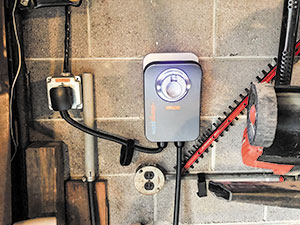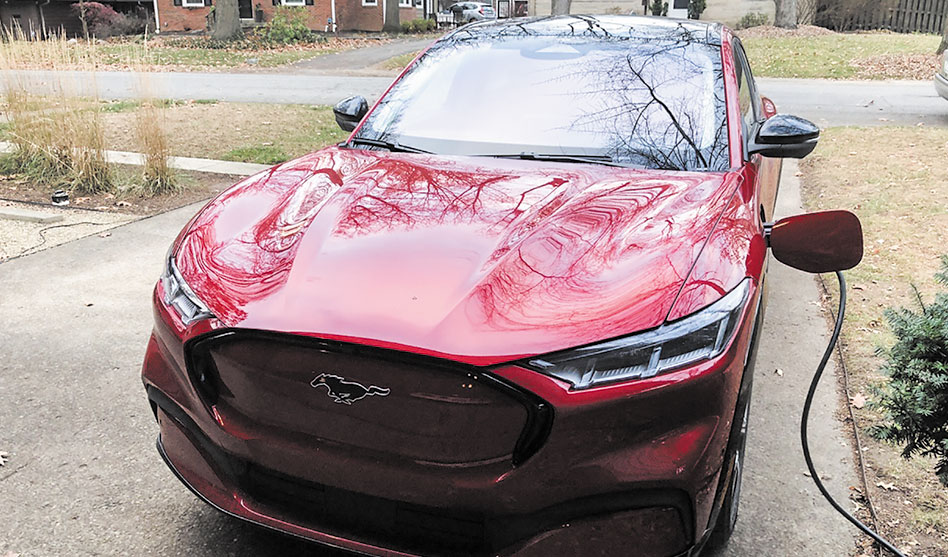The key to going EV starts with installing the right charger
CASEY WILLIAMS | Auto Reviewer
AutoCasey@aol.com
Probably from now until the end of your natural life, you’ll be hearing about and driving electric vehicles. Obviously, they’re not for everybody yet. Sure, they drive like jet-powered dreams, silent and swift. But keeping them charged presents the greatest challenge.
 Take it from me: I drive them regularly, and charging at home on a 110-volt outlet or trying to find public chargers for a faster replenishment is neither easy nor convenient.
Take it from me: I drive them regularly, and charging at home on a 110-volt outlet or trying to find public chargers for a faster replenishment is neither easy nor convenient.
So if you want an electric vehicle, plan on installing a home charger.
Upgraded electrical service
The usual quote is it will cost less than $1,000 to install an EV charger, especially if subsidized by an automaker as part of the purchase or lease price. That may be true if you live in a newer home with a 240v garage outlet (unlikely) or have 200 amp service that can handle the load of a charger. But when I inquired about having a charger installed, I had neither in my 1955 ranch-style house’s two-car garage.
No doubt, electricians are actively seeking EV charger installations. It’s good business once they determine the nuances of installation. Go to almost any local electrician’s website and “EV Charger Installation” will be at the front. Almost everybody will eventually have an EV charger installed, so reputable long-time electricians (and I assume some disreputable ones, too) are quickly getting up to speed.
A local homebuilder I trust recommended my electrician, and he was able to walk me through all of the challenges to upgrade service in my particular garage. After a thorough assessment, my house was upgraded from 100 amp to 200 amp service, kicking out the old fuse box for a new, higher capacity breaker box. Of course, that also required the electrician to bring the outside meter box and aerial weather head up to code.
Just the 200 amp upgrade was $3,680.
Getting charged up
That was the hard part, but not all of it. My next decision was what charger to buy and where to install it. I wanted to be able to use it for cars stored in the garage or, as is usually the case with my test cars, in the driveway. Mine would be installed on the garage side wall near the door.
I went on the local utility provider’s website, which had a page of suggested chargers, specifications and pricing. Most are under $700.
With the help of my electrician, I chose a universal charger from ChargePoint (also one of the main public charger operators). Since I will be charging in the driveway, it is weather resistant with an extra-durable cable to run under my garage door. Running wires and a plug from the electrical panel plus purchasing and installing the charger came to $2,000.
(If I lived in a newer home, that would have been almost all of the expense.)
That’s a grand total of $5,680 and six hours of work (without household power) — a long way from the “under $1,000” and quick hook-up I’ve often seen promised.
Overall, though, I’m very pleased with the quality of work and level of knowledge from my electrician. He knew exactly what was required and helped me make all of the right decisions for my 70-year-old house.
Most importantly, the charger works brilliantly and couldn’t be easier to use: Just click out of its holder, plug into the car’s charge port and wait for lights to change color to confirm connection. A few hours later, the car is ready to go.
Easy as that.
Storm forward!
Send comments to Casey at AutoCasey@aol.com; follow him on YouTube @AutoCasey..












